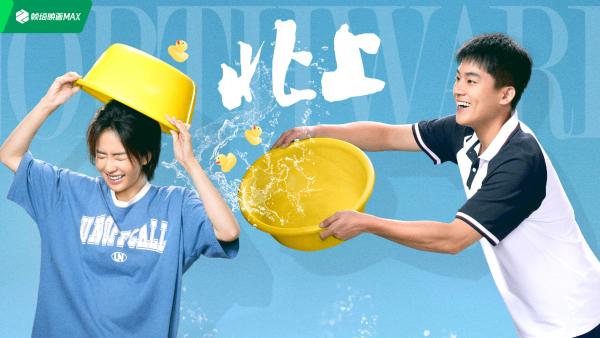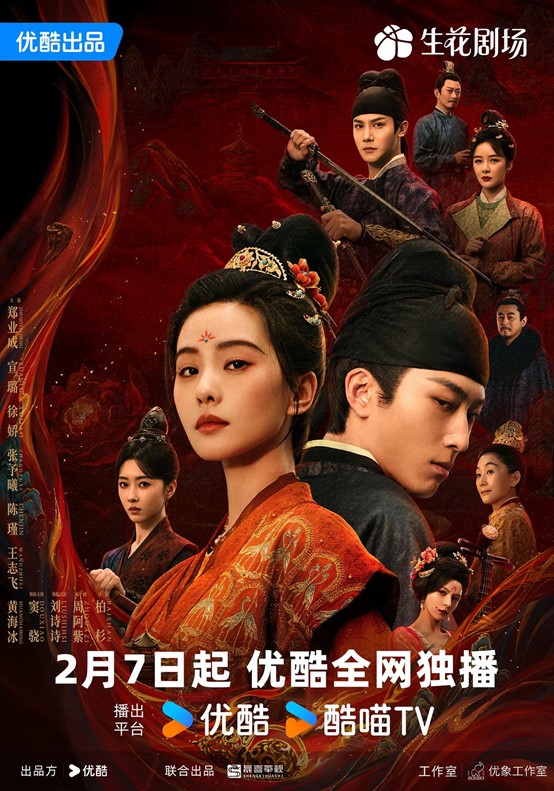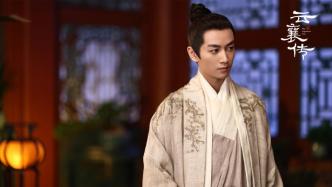
"The Legend of Yunxiang" starring Chen Xiao and Mao Xiaotong is adapted from Fang Baiyu's long martial arts novel "Thousand Gates" series. This novel is the memory of many post-80s and post-90s generations. The "Thousand Gates" series has been published in "Legends of Modern and Ancient Times·Martial Arts Edition" since 2006. In that era when paper media dominated, buying every issue of a magazine as soon as it was published was an unforgettable experience for many people in their school days. When the news of "Thousand Gates" came out, many people's first reaction was "finally", this martial arts novel engraved in the memory of youth is finally going to be put on the screen.
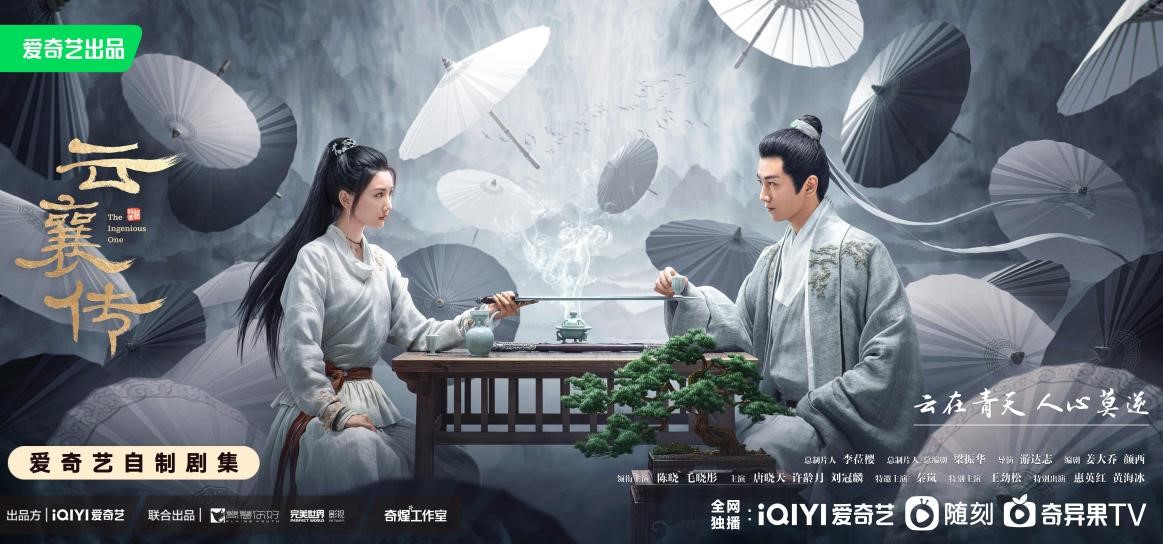
"Legend of Yunxiang" poster
Founded in 2001, "Jingu Legend·Martial Arts Edition" is also a legendary magazine. After Ang Lee's "Crouching Tiger, Hidden Dragon" won five awards at the Academy Awards in 2001, the domestic martial arts creation circle was greatly shaken, which directly triggered the subsequent sensational new martial arts creation. "Legends of Modern and Ancient Times·Martial Arts Edition" was founded under this background, and it soon became the frontier of new martial arts creations in mainland China with the revised "Martial Arts Stories" in 2002. Fengge, Xiao Lin, Cang Yue, Bu Feiyan, Representatives of new martial arts such as Fang Baiyu maintain very close ties with the magazine. For example, Fang Baiyu was even invited to the magazine for closed creation when he published his novel in "Legends of Modern and Ancient Times: Martial Arts Edition".
However, after the "Thousand Gates" series, the creation of new martial arts in mainland China has just entered a period of silence. This is not only related to the limitations of the creation of new martial arts, but also related to the impact brought about by the advent of the Internet age and the prosperity of Internet literature. Just in February of this year, "Legends of the Ancient Times·Martial Arts Edition" also announced the suspension of publication-this can be called the complete disappearance of an era.
As a representative figure and representative work of new martial arts, Fang Baiyu's "Thousand Gates" series has some characteristics of new martial arts, but it is not as "radical" as some new martial arts.
New Martial Arts is a creation under "The Anxiety of Influence". Young martial arts novel writers are deeply influenced by Jin Yong's martial arts novels, but also eager to get rid of Jin Yong's too dazzling light to establish their own position. They are eager to innovate and gain a foothold in the literary world. On the one hand, they try to expand the traditional paradigm of martial arts novels and seek new possibilities. For example, Fang Baiyu's "Thousand Gates" series opened up the creative mode of "Smart Hero". Wisdom, the novel is full of strategy and wits, which enriches the elements of martial arts novels to a certain extent.
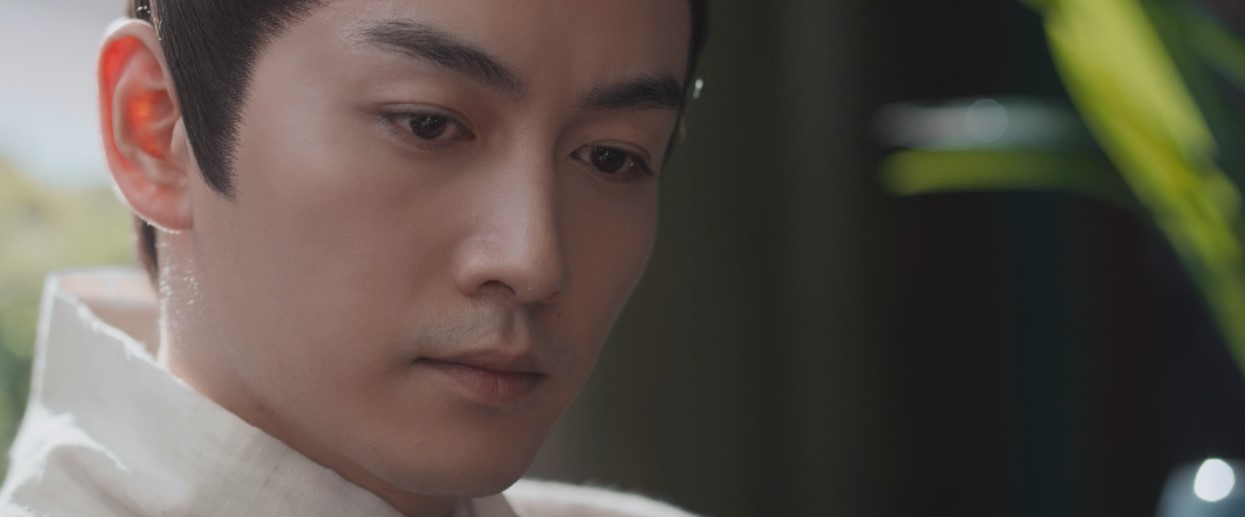
Yun Xiang (played by Chen Xiao in the drama version)
The truly radical move in the creation of new martial arts is not to deconstruct the "wu" of "martial arts", but to deconstruct the "xia" of martial arts. In the traditional martial arts narrative, the great chivalrous man, serving the country and the people, and the common people in the world always take precedence over the personal grievances and hatreds of the chivalrous man; the chivalrous man does not follow the rules of the rivers and lakes and is assimilated by the rivers and lakes, but sticks to justice, acts on behalf of the heavens, Punish evil and promote good, the existence of knights makes the rivers and lakes with rapids and rapids a utopia for common people.
However, for many new martial arts creators, personal carefreeness and freedom are above all else. Jianghu is "just a snow-covered wasteland, full of order and power, and cannot accommodate the dreams of teenagers and passionate impulses." The rivers and lakes are not worthy of devotion and entrustment. Benefits replace morality, and using small evils to control big evils has become the new code of conduct for the protagonists.
The characteristic of Fang Baiyu's "Thousand Gates" series is that it has the innovation of "smart man", but in the presentation of chivalrous spirit, it is more like a collection of old and new martial arts: Yunxiang once adopted the "anti-martial arts" code of conduct, But in the end he chose to return to the great man.
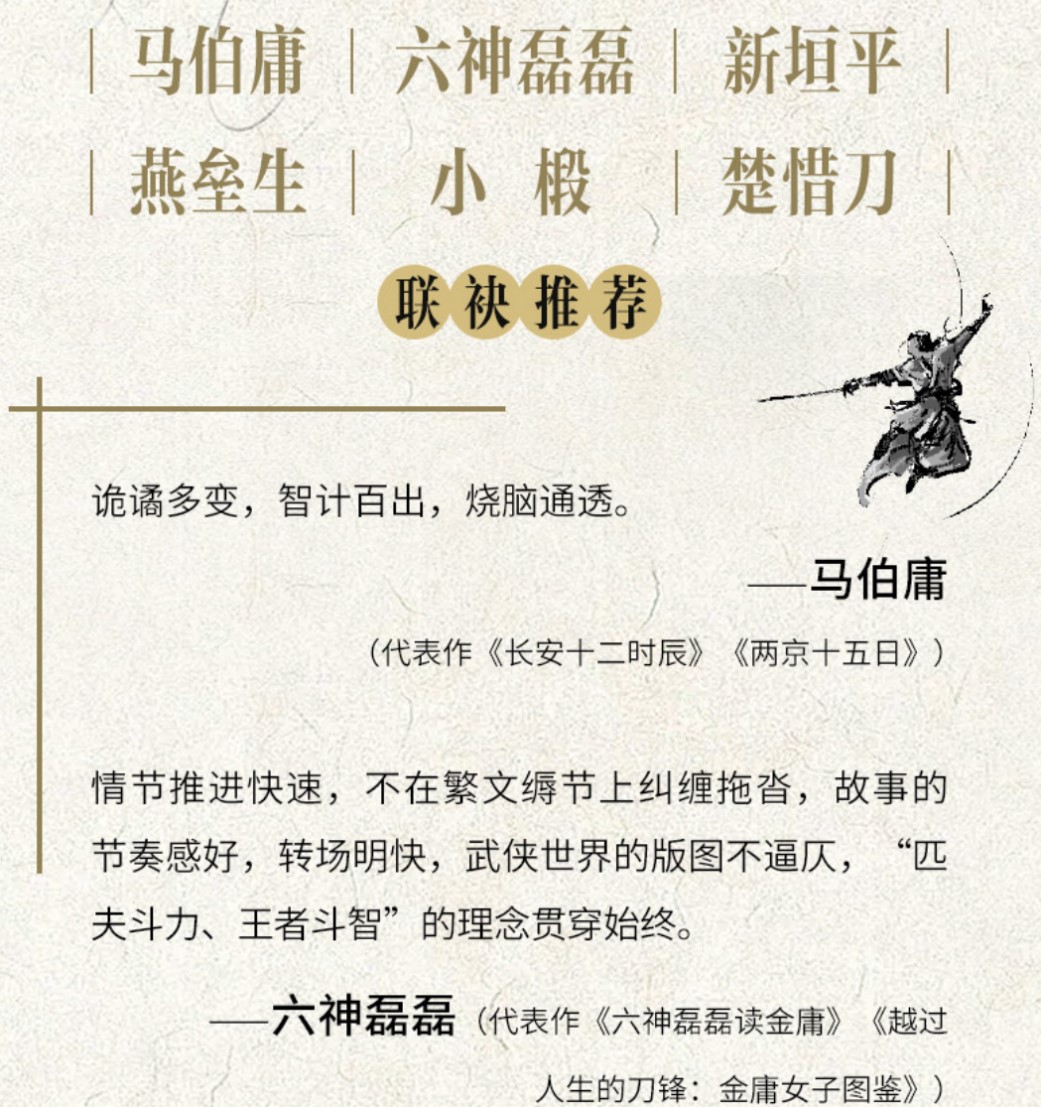
When the "Thousand Gates" series was republished, it was recommended by Ma Boyong, Liushen Leilei and others. It seems that this novel has indeed influenced many post-80s writers
From the current point of view, the adaptation of the drama version of "The Legend of Yunxiang" can still capture the spiritual core of the novel, which separates it from the mainstream martial arts dramas on the market.
The male protagonist Yunxiang (played by Chen Xiao) hardly knows martial arts—only one "escape ten breaths" is used to escape, which means that Yunxiang can't draw swords to help and save the beauty like a hero in a traditional martial arts drama. The plot also doesn't have a series of exciting action scenes around the male lead. This instead allows "The Legend of Yunxiang" to put more effort into the intellectual game. As the saying goes, "people have neither the claws of tigers and wolves nor the power of lions and elephants, but they can capture wolves and subdue tigers, tame lions and hunt elephants, why? Wisdom alone".
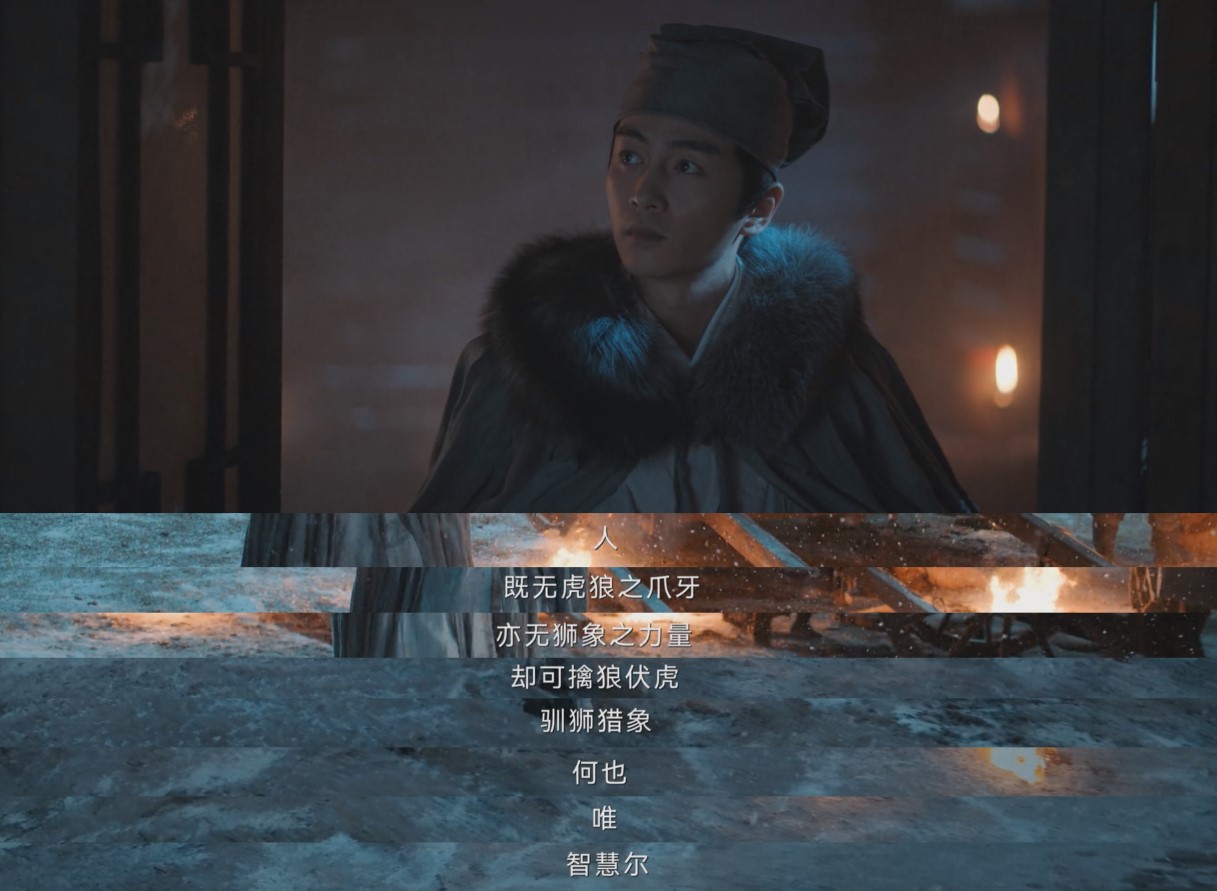
Yun Xiang is a "wise man"
The intellectual game of "Legend of Yunxiang" is not like the traditional strategy drama that only revolves around tactics. It involves a lot of business games and has a strong taste of modern economic warfare. For example, in a business war scene that takes up a lot of space in the play, in order to overthrow Qi Tianfeng (played by Wang Jinsong) who controls the Cao Gang, Yunxiang designs to involve the Su family, a local weaving family, and make the Su family a bait. This carefully planned, calculated, and ups and downs business war can be viewed as a business war drama. In a martial arts drama, you can see quite a professional business war plot, which is indeed a bit fresh.
After fighting Qi Tianfeng, Yunxiang starts to fight Tang Xiao (played by Liu Di), the biggest evil force in the area. The plot is also not a fuss about martial arts, but revolves around the two people's three-game gambling game, which is not only a war of hearts, information, but also a business war. The setting of suspense and the creation of atmosphere suddenly give people an experience of watching Hong Kong movies with the theme of gambling saints.
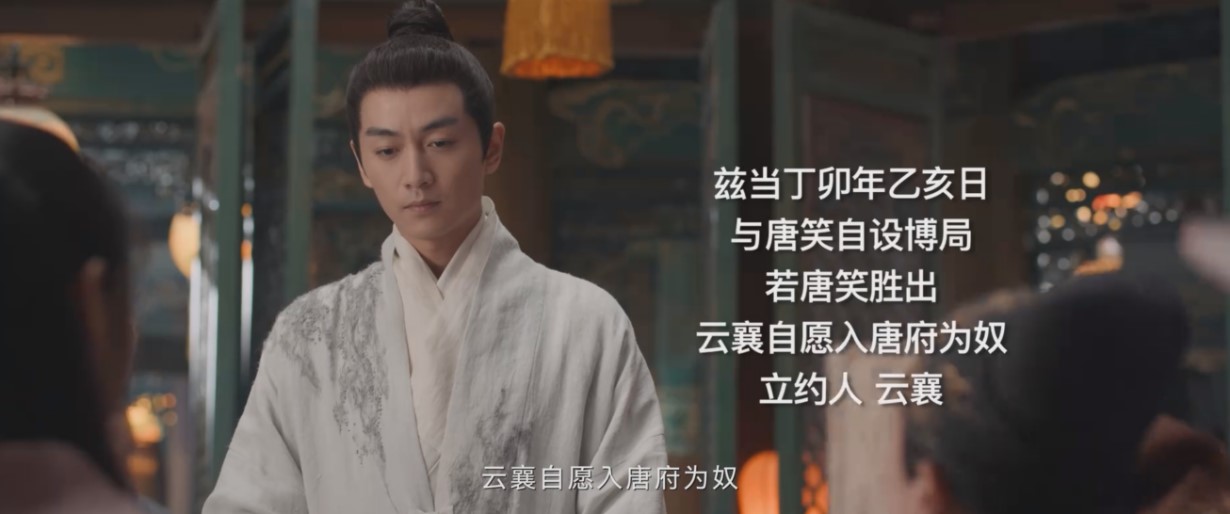
The Gambling Game between Yun Xiang and Tang Xiao
Another influence brought by "Smart Man" to "The Legend of Yunxiang" is the change in the image of the male and female protagonists. Yun Xiang is not as powerful or honest as the traditional martial arts male protagonist, he looks gentle (and sometimes fragile); in contrast, the heroine Shu Yanan (played by Mao Xiaotong) is a heroic female knight.
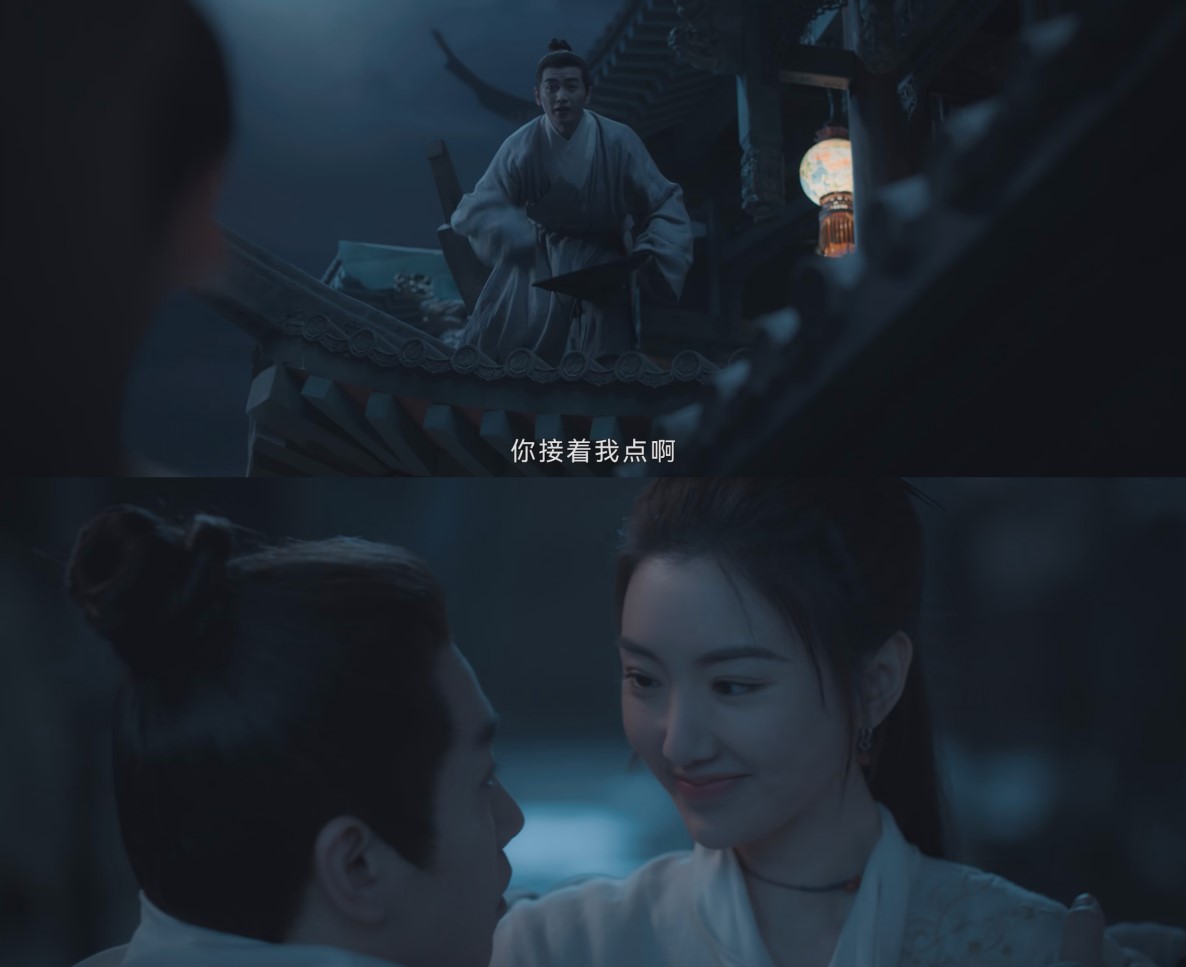
Shu Yanan (played by Mao Xiaotong) is heroic
It is common in martial arts dramas that the hero saves the beauty. In "The Legend of Yunxiang", Yunxiang anxiously stretches out his hands "begging for a hug". Shu Yanan had to catch him when he flew down; after the two of them expressed their sincerity to each other, it was Yunxiang, the little bird, lying in Shu Yanan's arms to watch the sunset... Although the "female A male O" person It is often seen in film and television dramas, but "Legend of Yunxiang" really reflects the contrast between the characters (Editor's Note: "Female A Male O" is an Internet term, women are strong Alpha, men are weak Omega).
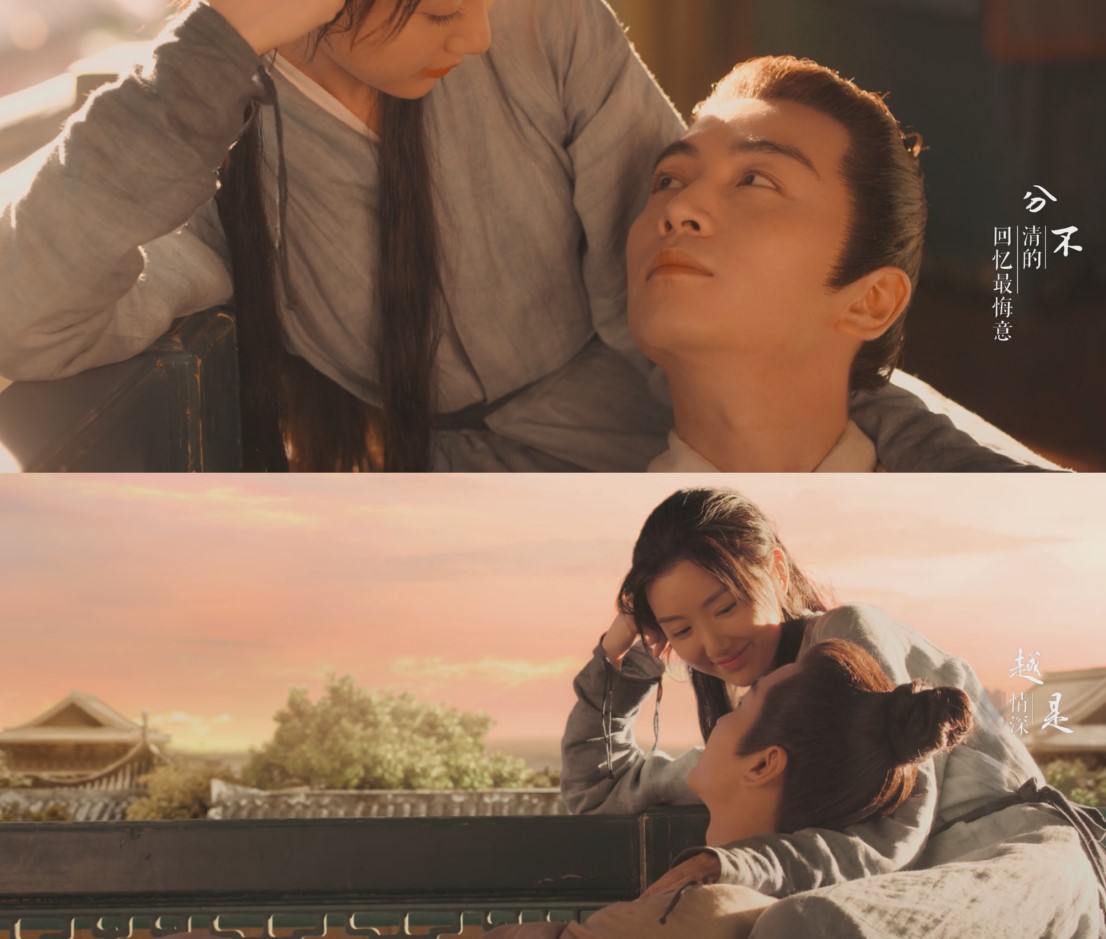
"Female A Male O" in the relationship between men and women
In addition to "Smart Heroes", the influence of the creation characteristics of the new martial arts on "The Legend of Yunxiang" is reflected in the changes in character creation.
Although Yunxiang belongs to the "Yuntai" sect of Qianmen, the requirement for the disciples is that they should not be attached to things, nor should they be obsessed with emotions, and they must completely abandon their hearts and emotions. But Yunxiang couldn't do it, he couldn't forget the tragedy of the extermination of three hundred and thirteen members of the Luo family (Yunxiang's real name was "Luo Wenjia", but he was renamed "Yunxiang" after the family was exterminated). Revenge was his initial motivation.
When walking in the rivers and lakes, Yun Xiang didn't think of the great man serving the country and the people, but what he thought of was to achieve the goal by whatever means. Although Yunxiang's "unscrupulous means" will not be as omnipotent as a treacherous and evil person, but in the face of great evil, Yunxiang still does not hesitate to use small evils to deal with it, and in the face of injustice, if it goes against his goal However, Yun Xiang would also choose to "do nothing" - what he thought of was not to help the poor, but not to destroy his plan by causing extra trouble.
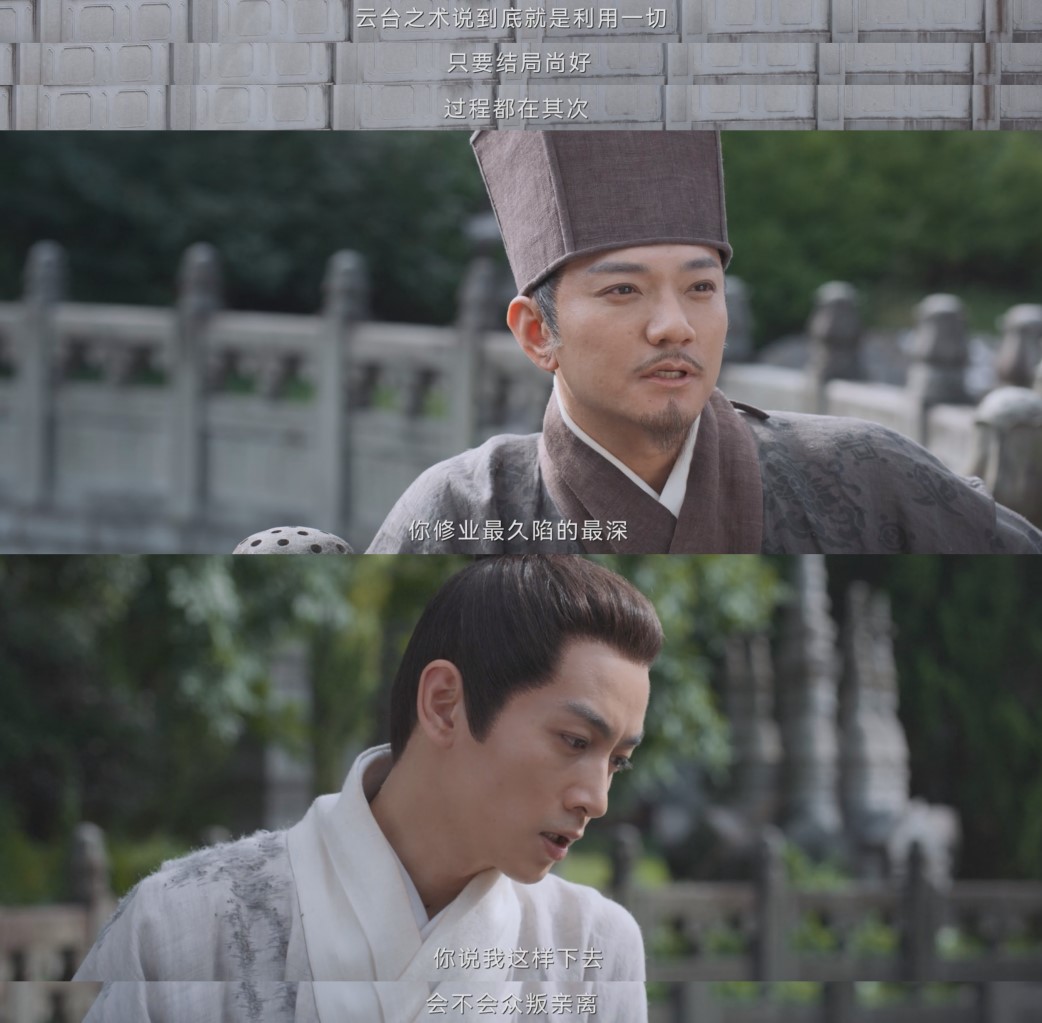
Yunxiang was deeply influenced by the technique of Yuntai
For example, there are plots involving child abduction in the play. Yunxiang's loyal "bodyguard" Jin Biao (played by Liu Guanlin) is rough but delicate and chivalrous. He implores Yunxiang to help find more children. Yunxiang actually has clues about child abduction, but he chooses to keep it a secret from Jin Biao first, in order to avoid alarming others. At the same time, he also refused to help find the child, on the grounds that "there are so many crises at the moment, how can I enjoy the joy of children around my knees like you."
Another example is that in order to bring down Qi Tianfeng, Yunxiang designed to involve the Su family in this dispute. First, the raw silk warehouse of the Su family was burned, which caused heavy losses to the Su family and reduced the Su family to "bait". But when the raw silk was burned, the risk the Su family faced would be to lose the reputation of the merchant or the title of the imperial merchant. Yunxiang also designed to let the Su family sell the deed, which was tantamount to betting on the Su family's century-old foundation. Once Yunxiang's plan failed , then the Su family will be completely destroyed.
At this time, Yunxiang somewhat has the taste of "exquisite egoism", and because he is too smart, this kind of calculation becomes more and more "terrible". When he only had a 50% chance of winning, he dared to gamble with the Su family's century-old foundation and the lives of the servants and bodyguards who protected the raw silk when they were out of luck. How could he look like a knight-errant?
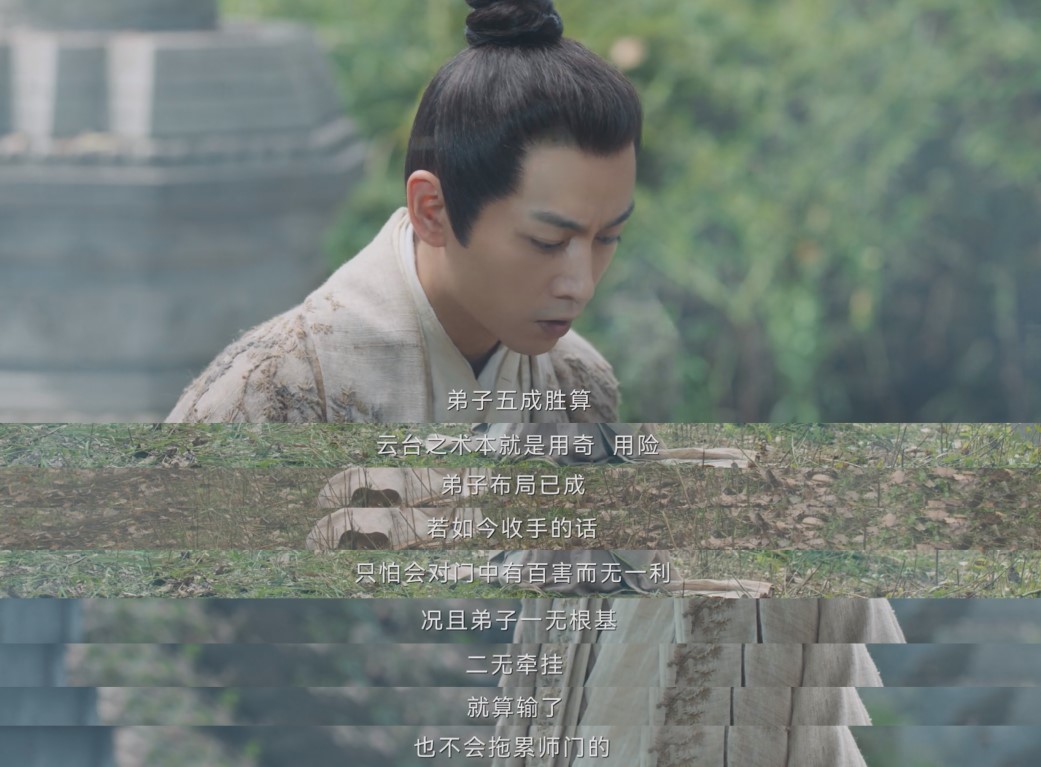
Yun Xiang is smart enough, but also ruthless enough
This is also the difference between Shu Yanan and Yun Xiang. Shu Yanan "only takes the lives of sinners and never harms innocent people", while Yun Xiang can treat everyone as pawns, including Shu Yanan, and even those innocent people. When faced with Shu Yanan's questioning, Yun Xiang at this time still had plausible words: Those who killed innocent people were those bad guys Yunyun. But if Yunxiang hadn't used them as pawns, they might not have died.
It can be said that the portrayal of Yunxiang in the first half of the plot of "The Legend of Yunxiang" is bold and adventurous. There is no need to find all kinds of reasons for Yunxiang, why does he want to do "big things" Yunyun, the first step for all wicked people to fall is, because I want to do "big things", so I do evil, once this opening is opened, it is often hard to close . What Yun Xiang did at this time was indeed "anti-martial arts", his revenge goal came first, and his self-interest was deeply rooted in his bones.
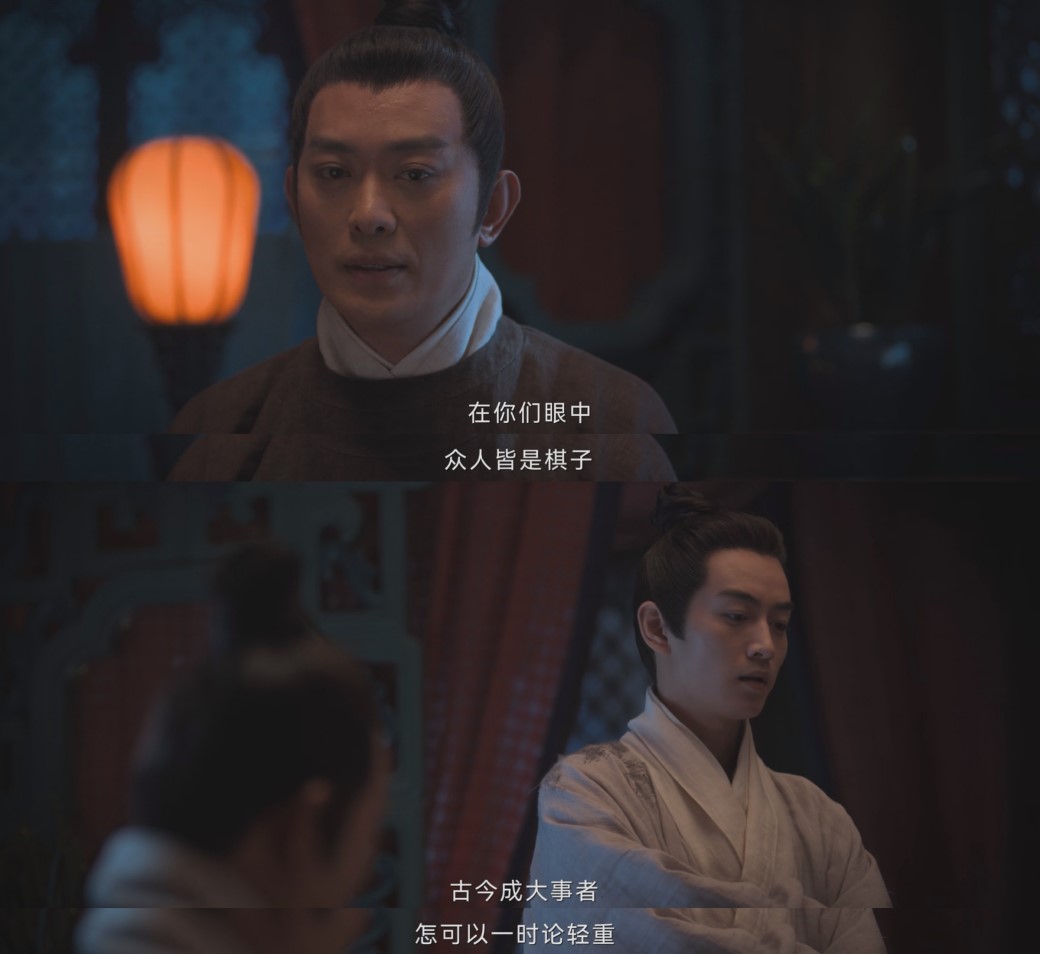
In Yunxiang's layout, human life can also be sacrificed
Recalling that new martial arts novels have died down in just a few years, which is not unrelated to the overly aggressive swordsmanship when they were created. In order to be different, new martial arts "anti-martial arts". Fortunately, Yunxiang at this time does not represent the "Thousand Gates" series, nor does it represent the values of "The Legend of Yunxiang". At this moment, Yun Xiang, who is unable to extricate himself from the abyss of revenge, will encounter severe shocks in the subsequent plots, which gives him an opportunity to learn from the pain. I hope that the follow-up plot can give a convincing portrayal of Yunxiang's human nature turning point of "wanting to promote before suppressing". This is bound to be the focus of the follow-up plot of "The Legend of Yunxiang", and it is also the key to Yunxiang's ability to truly impress people.
Generally speaking, "The Legend of Yunxiang" retains some advantages of the new martial arts, such as the characteristic setting of "smart man", such as the starting point of Yunxiang's "anti-martial arts" (of course, this may cause great controversy ). But at the same time, it also plays a role of communication and connection between old and new martial arts. Inherit the tradition of "Confucianism and Heroism" to create peace for all generations. If you are not a fundamentalist in martial arts dramas (you may be offended by the characters and the plot), "The Legend of Yunxiang" can still be followed.
